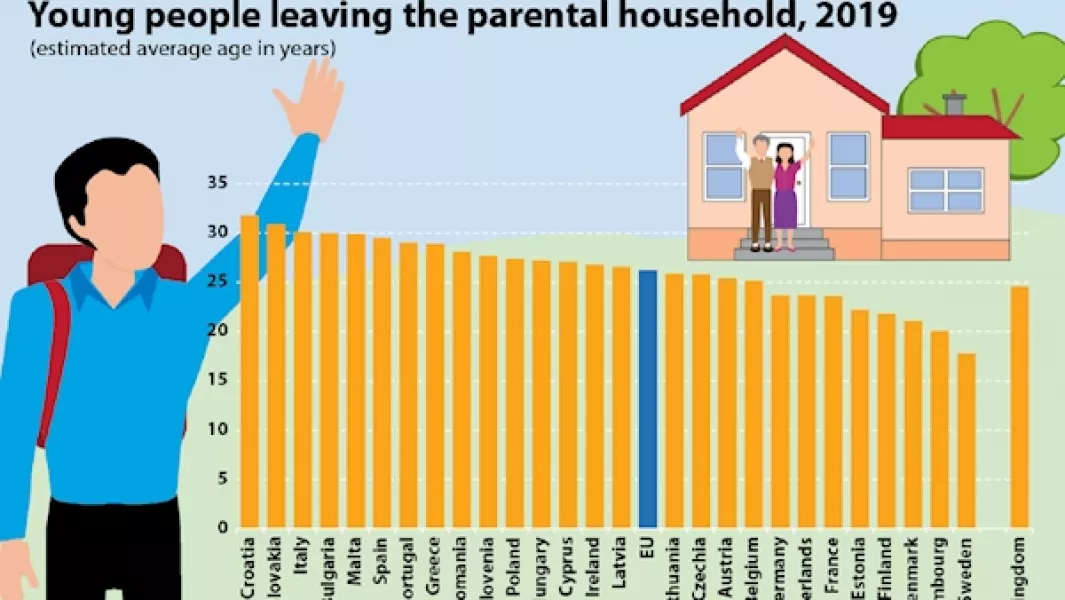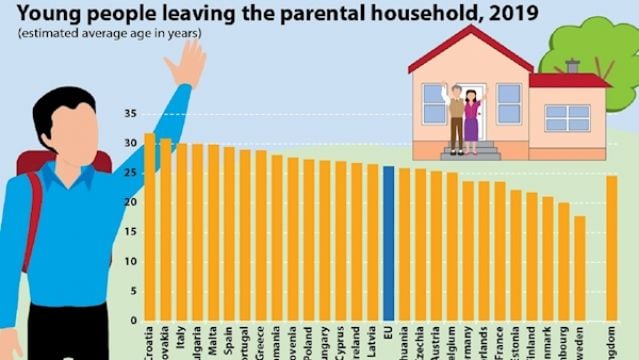New Eurostat figures show young women move out slightly earlier than young men do.
In Sweden, people leave the family home at just under 18 years of age, 21.1 years in Denmark and 21.8 years in Finland.
Croatians meanwhile are the oldest when they move out, at 31.8 years.
According to Eurostat In 2019, the share of young people aged 25 to 34 who were living with their parents ranged across the EU Member States.
It ranged from 10 per cent in Denmark (4.0 per cent), Finland (4.8 per cent) and Sweden (5.7 per cent), to more than half in Slovakia (56.4 per cent in 2018), Greece (57.8 per cent) and Croatia (62 per cent).

Eurostat said that leaving the parental household is often affected by whether or not young people are in a relationship with partner or studying, their level of financial independence, labour market conditions, the affordability of housing but also cultural particularities.
Parental household
On average, young people in the EU left the parental household at the age of 26.2 years in 2019. However, this age varied significantly across the EU Member States.
In 2019, young people left home earliest in the three northern Member States – Sweden (17.8 years), Denmark (21.1 years) and Finland (21.8 years), as well as in Luxembourg (20.1 years).
Young people also left home before the age of 25 in Estonia (22.2 years), France (23.6 years), Germany and the Netherlands (both with 23.7 years).
At the other side of the scale, young adults in Croatia and Slovakia remained the longest in the parental household.
They left home on average at the age of 31.8 and 30.9 years respectively. Young adults in Italy (30.1 years), Bulgaria (30.0 years), Malta (29.9 years), Spain (29.5 years), Portugal (29.0 years) and Greece (28.9 years) also remained with their parents for longer.
In almost all EU Member States, young women tended to leave the parental household earlier than men. The only exception was Luxembourg 20.3 years for women, compared with 20.0 years for men).







